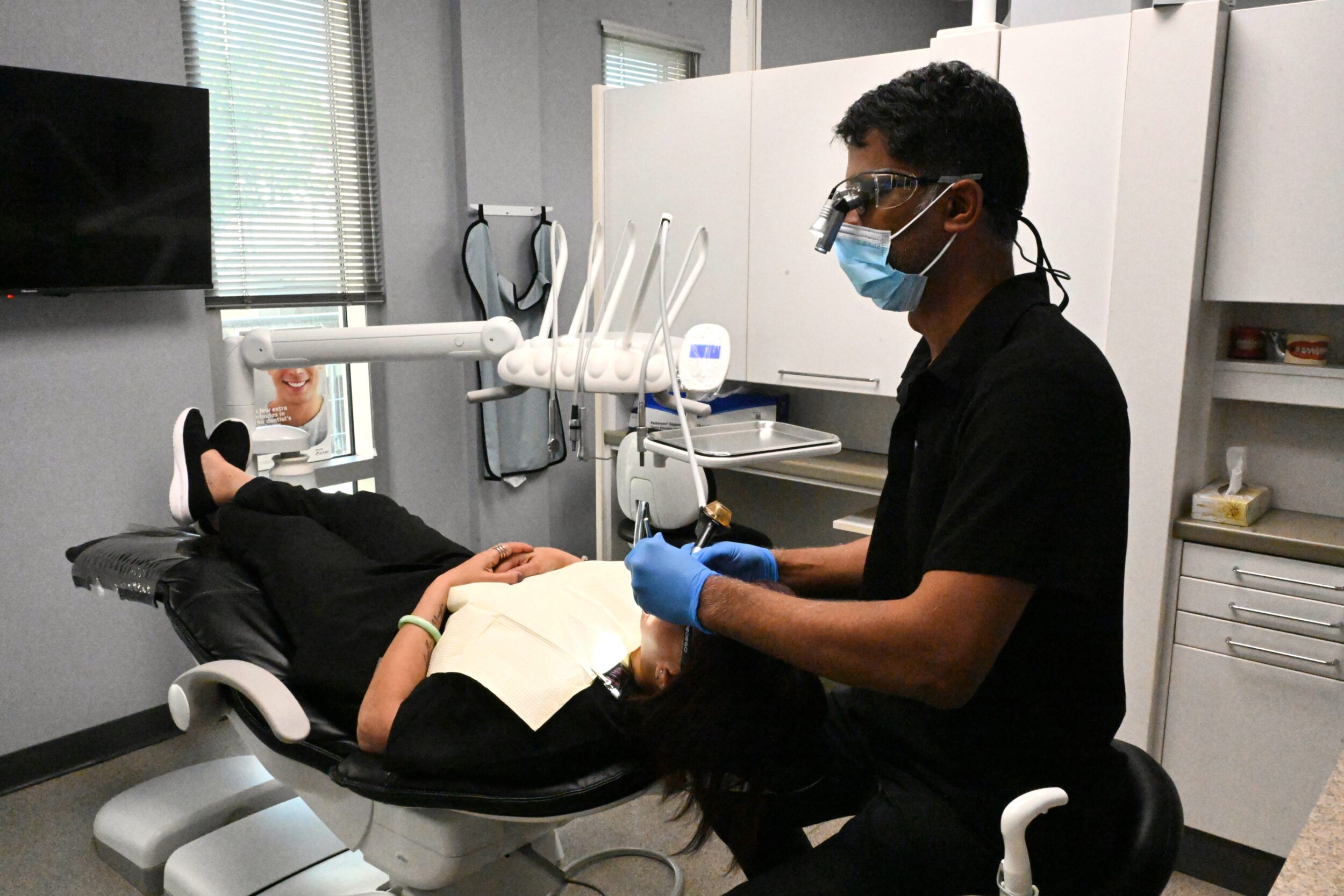Endodontics in Calgary, AB
There is a specialized branch of dentistry known as endodontics that deals with the complex structures found within the teeth. In Greek, “Endodontics” means “inside the tooth,” which refers to the pulp, tissues, nerves, and arterioles within the tooth. In addition to completing dental school, endodontists receive additional training in order to be able to perform both complex and simple procedures, including root canals.
Historically, a tooth with a diseased nerve would be extracted immediately, but endodontists are now able to save most natural teeth. Damaged teeth can generally be restored to health and functionality by removing the inner tooth structures and sealing the gap with a crown.

The following are signs and symptoms of endodontic disease:
- Gum inflammation and tenderness.
- The teeth are sensitive to hot and cold foods.
- A feeling of tenderness when chewing and biting.
- Discoloration of the teeth.
- Lymph node pain that is unexplained.
Reasons for endodontic treatment
In order to preserve the natural tooth, endodontic treatment (or root canal therapy) is performed. While many advanced restorations are available, most dentists agree that healthy, natural teeth cannot be substituted.
The following are some of the most common causes of inner tooth damage:
Bacterial infections – The most common cause of endodontic problems is oral bacteria. Due to tooth decay or injury, bacteria can enter the pulp of the tooth through tiny fissures in the teeth. As a result of the inflammation and bacterial infection, the affected tooth may be at risk of developing an abscess.
Dental injuries – A direct or indirect blow to the mouth can result in injuries to the teeth. It is possible for a tooth to become luxated, or dislodged from its socket, as a result of some injuries. An endodontist may recommend root canal therapy after successfully stabilizing an injured tooth.
Fractures and chips – There may be a need for root canal therapy when the surface or crown of a tooth has become completely detached. It is possible for the pulp to become debilitatingly painful and problematic after the crown portion has been removed.
Removing teeth – As soon as possible after a tooth is knocked out of its socket, it should be rinsed and placed back into its socket. Alternatively, if this is not possible, place the tooth in a special dental solution (available at pharmacies) or in milk. In this manner, the inner mechanisms of the tooth will be kept moist and alive while emergency dental treatment is sought. After the tooth has been affixed in its socket with a special splint, the endodontist will perform root canal therapy in order to save the tooth.
What does an endodontic procedure invlove?
It usually takes between one and three visits to complete root canal therapy. A complete set of X-rays of the teeth will be taken and examined before treatment begins.
The procedure will begin with the administration of a local anesthetic and the placement of a dental dam (protective sheet) to ensure that the surgical area remains free of saliva throughout the procedure. Using small handheld instruments, an opening will be made in the surface of the tooth, and the pulp will be completely removed.
Now it is time to shape, clean, and fill the space with gutta-percha. The material gutta-percha is biocompatible and somewhat similar to rubber. On top of the cement, the root canals will be completely sealed off. Prior to the permanent restoration procedure, a temporary filling will usually be placed to restore functionality to the tooth. The final visit will involve the placement of a permanent restoration or crown.
Please consult your dentist if you have any questions or concerns regarding endodontic procedures.